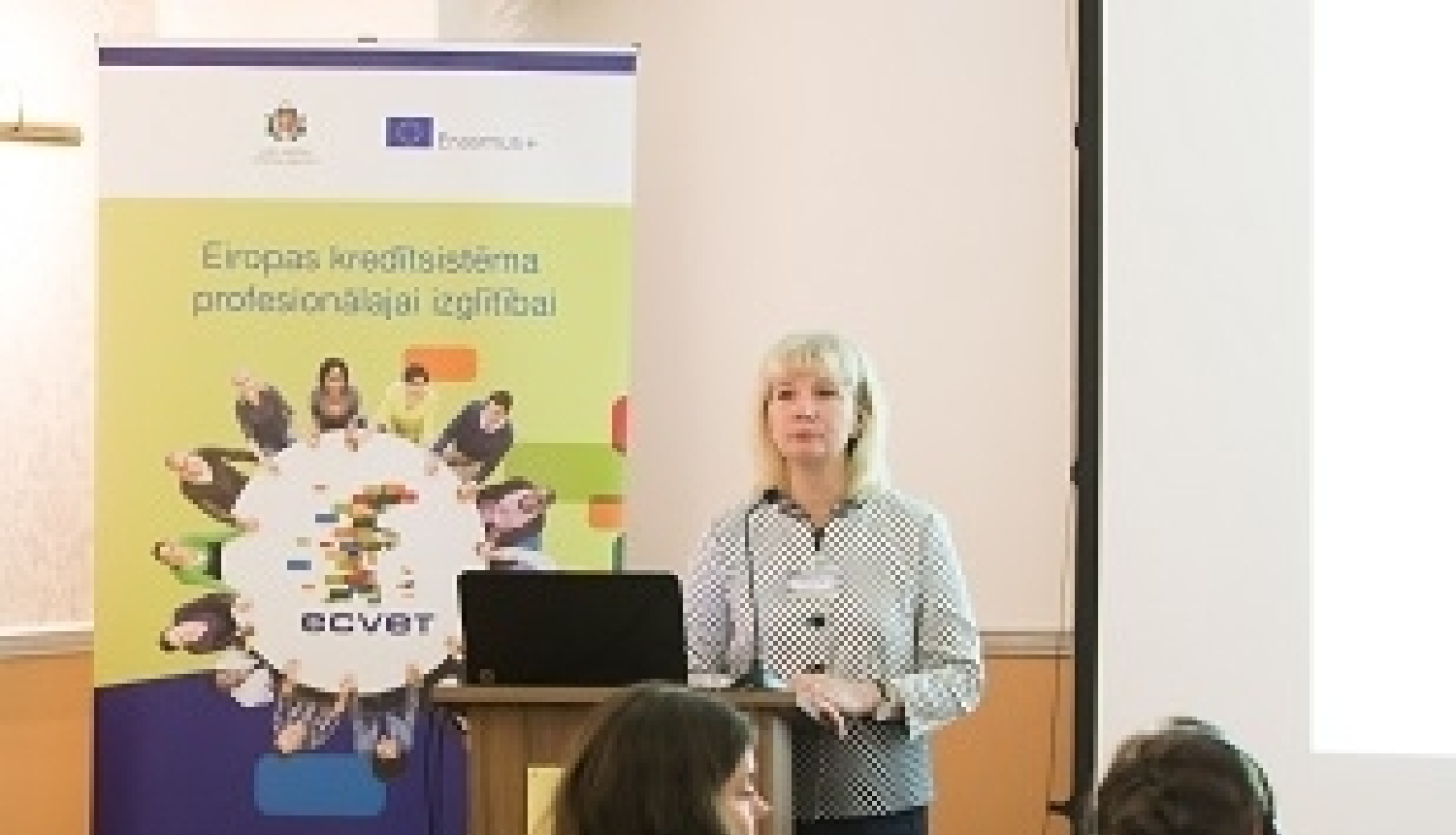State Education Development Agency (VIAA) on 28 October, 2016 organised discussion for policy makers on ECVET (European Credit System for Vocational Education & Training (VET)) implementation approaches comprising so essential aspects as ECVET development tendencies in Europe, already achieved in Latvia, discussing further challenges. ECVET implementation approaches were looked at also from perspective of director of VET institution and employer.
The event participants were representatives from both - involved public administration institutions – Ministry of Education and Science of Latvia (MoES), National Centre for Education (NCE), State Education Quality Service, and social partner institutions – Employers’ Confederation of Latvia and Latvian Trade Union of Education and Science Employees. Particularly remarkable is participation of representative from ECVET Secretariat (Brussels, Belgium) - Mrs Anette Curth – in this event. She made a very detailed and comprehensive overview on ECVET developments in Europe, emphasizing topicalities and further challenges at European level. Representatives of ECVET Secretariat, MoES, NCE, VIAA and ECVET LV expert - employer took an active part in the panel discussion where further challenges of ECVET implementation in Latvia were described and analysed from various and diverse aspects, also in the context of latest European development tendencies.
Participants highly appreciated the topicality of the discussion, covered themes, especially accenting great input of ECVET Secretariat, ECVET LV National experts, and other involved institutions.
Materials of the discussion are available on VIAA’s website ECVET section.
The discussion was organised by VIAA – Erasmus+ LV National Agency for education and training within the framework of ECVET Annual Work Programme 2016. VIAA is implementing the ECVET Activity as of 2014, disseminating information on ECVET elements, principles, ECVET application in Erasmus+ geographical mobilities, and other important aspects.




